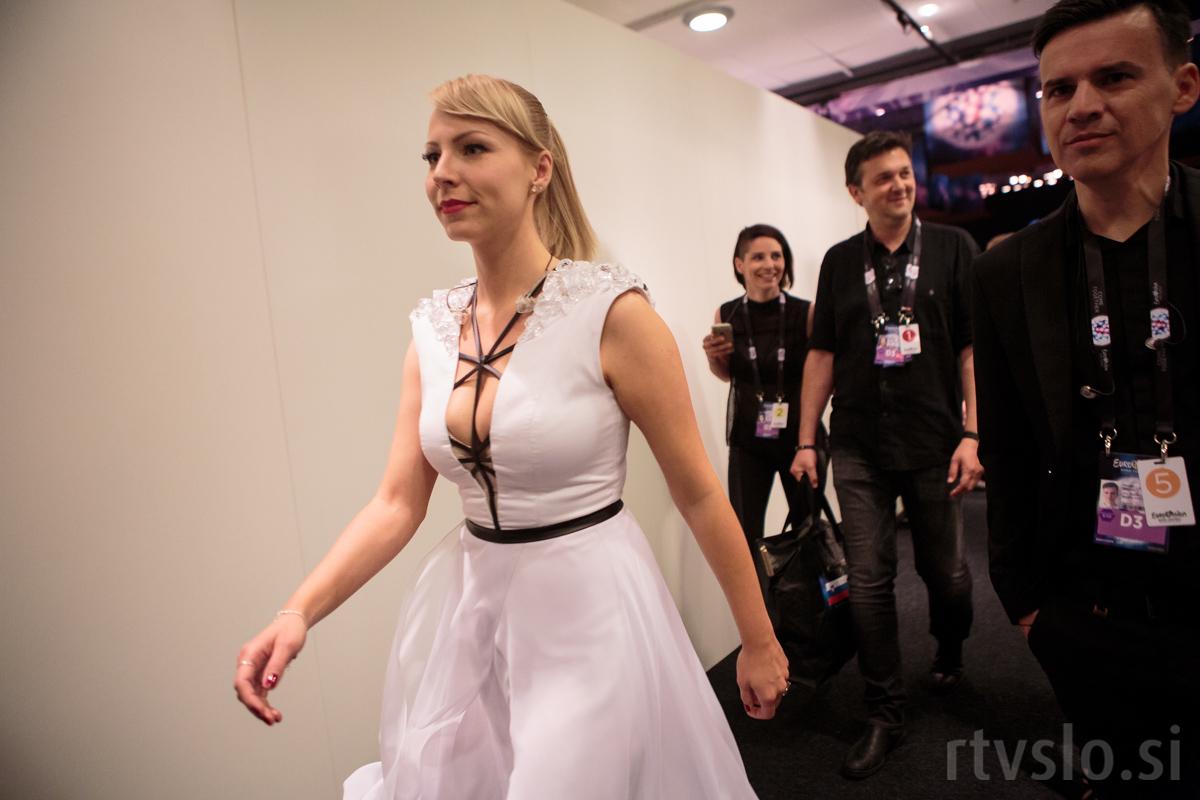The 27-year-old Slovenian singer fulfilled her dreams last night - for three minutes the eyes of Europe focused on her performance and song. She made it to the Eurovision Song Contest after winning over the audience at the Slovenian EMA song contest. "I'm proud of my performance. Most important is that I don’t reproach myself as I gave it my best," is what ManuElla told MMC right after her performance.
The singer was surprised by the end result. "I never thought politics interfered in the contest, but after Norway - which had my favourite song - failed to through, I do have doubts. At the same time, if I'm honest, the Georgian song was the poorest. Everything happens for a reason. I'm convinced that this was my best experience so far. I'm more than happy that Slovenia supported me and gave me this opportunity - to perform on the most beautiful stage on the world," the 27-year-old ManuElla thanked her fans.
She shared the "most beautiful stage on the world" with Danish acrobat Jannik Baltzer Hattel. On her right ManuElla was vocally backed by Mitja Bobič, Lea Sirk, Karin Zemljič and Marjan Hvala (who is also the co-author of the Blue and Red song. The lyrics were written by Leon Oblak).
"It was indescribable up on the stage. It's something you wish for all your life... Those are the kind of feelings you can't describe. You're just happy. You’re happy. And you sing to the audience and you see them breathing with you. That's why I want this even more," is how ManuElla described her three minutes on stage.
The native of Laško accepted her failure to make it to the final in high spirit. "Don't give up - that's life. There are always ups and downs. The most important thing is that we're proud of ourselves. We hold our heads high and enjoy life. That's why we're here. We're not her to worry and look for problems. We're here to have a good time (da se imamo 'fajn')," concluded ManuElla.



































































